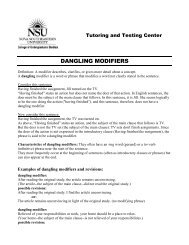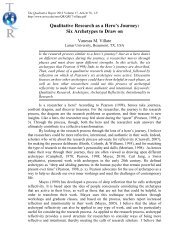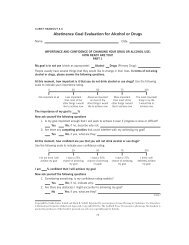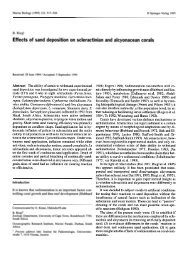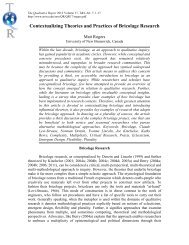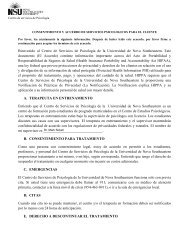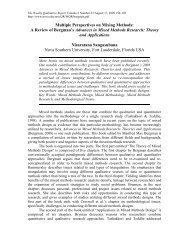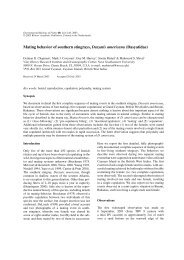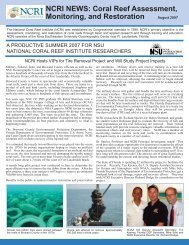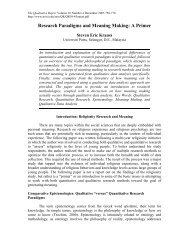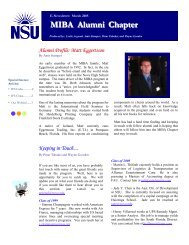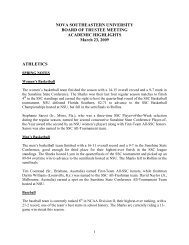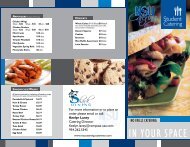Can We Bulk up - Nova Southeastern University
Can We Bulk up - Nova Southeastern University
Can We Bulk up - Nova Southeastern University
You also want an ePaper? Increase the reach of your titles
YUMPU automatically turns print PDFs into web optimized ePapers that Google loves.
Emotional<br />
dimensions of wellness<br />
emotional<br />
hunger:<br />
What’s Eating You?<br />
By Casey Elise Zagaria, M.B.A.<br />
For many of us, food is more than a nutrient—it’s a nurturer.<br />
Whether we dive into a pint of ice cream to soothe a painful<br />
break<strong>up</strong>, a bag of chips while we’re cramming for a big test,<br />
or a cheeseburger after a night downtown, most of us are<br />
guilty of eating on impulse.<br />
These feelings of hunger “do not have to do with the need for food, but relate to<br />
the use of eating as a way of meeting emotional needs,” said Mark Sobell, Ph.D., ABPP, professor<br />
at <strong>Nova</strong> <strong>Southeastern</strong> <strong>University</strong>’s Center for Psychological Studies.<br />
Emotional hunger differs from physical hunger in ways other than the emotional cues, according<br />
to Brian Wansink, Ph.D., of Cornell <strong>University</strong>’s Food and Brand Lab. Emotional hunger involves<br />
instant gratification and a sense of urgency, while physical hunger does not. Since emotional<br />
hunger is feeding a specific feeling, it focuses on one type of food, rather than the variety that a<br />
meal provides.<br />
This could be a common occurrence on college campuses as students are experiencing their first<br />
taste of independence and dealing with the stresses of school. Their meals may not be driven by<br />
physical hunger.<br />
17



